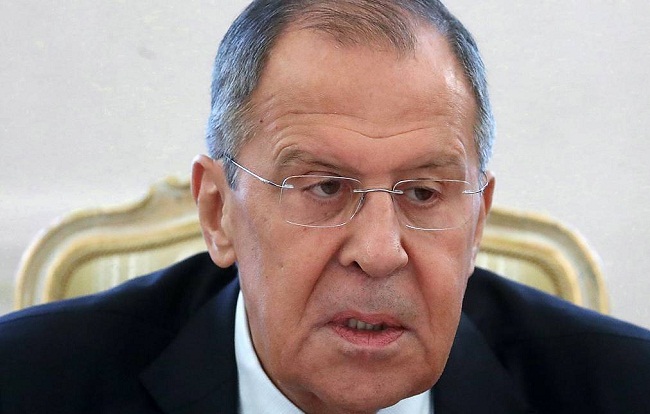PETERSBERG /Germany - The European Union’s policy of sanctions geared to frustrate Russia’s technological and economic development has bounced off in billiards-worth losses for European countries, Russian Foreign Minister Sergey Lavrov said.
“Life has shown: the policy geared to hinder Russia’s economic and technological development has entailed negative impacts on European businesses and European consumers,” he said at the plenary session of the Petersburg Dialogue forum. “By today, losses have amounted to billions of euros. As far as I know, there is a study by the Committee on Eastern European Economic Relations on that matter.”
According to the Russian top diplomat, the anti-Russian “illegitimate unilateral sanctions” run counter to the “positive changes and prospects for cooperation between Russia and Germany.”
Lavrov recalled that the European Union had imposed its anti-Russian sanctions as response to Russia’s support to people living in Crimea and Donbass who “refused to recognize national radicals who came to power in Kiev as a result of a state coup to unleash a war on the Russian language, Russian culture and Russian values and proclaim Nazi accomplices as their heroes.”
Following the developments in Ukraine and Crimea’s reunification with Russia in 2014, the European Union imposed sanctions against Russia, which have been extended and expanded regularly ever since.
Talks on visa-free travel and a new framework cooperation agreement were suspended, a number of Russian officials were banned to enter the European Union and their assets were frozen. Apart from that, the European Union imposed trade, financial and defense-related restrictions.
The Petersburg Dialogue forum was set up in 2001 at the initiative of Russian President Vladimir Putin and the then German Chancellor Gerhard Schroeder to promote open exchange of opinion between politicians, people of science and culture, businessmen and civil societies.
Lavrov urges world community to try to find balance of interests on key global problems
Lavrov has also called on the world community to try to find a balance of interests on key problems rather than seek to suppress emerging centers of influence.
“The world is changing rapidly, with new centers of economic and political influence emerging. Attempts at containing, drawing division lines, declaring states as outcasts – all this is repulsed by the majority of participants in international life,” he said at a plenary session of the Petersburg Dialogue forum. “I think that much more attractive is creative work, the search of a balance of interests, either on Syria, Libya, Yemen, the Middle East settlement, and Kosovo or on saving the Comprehensive Plan of Action on the Iranian nuclear program.”
According to the Russian top diplomat, the global economy needs integration associations based on the principles of equality and mutual benefits. “This is what the Eurasian Economic Union relies upon,” he stressed.
TASS
R.S

